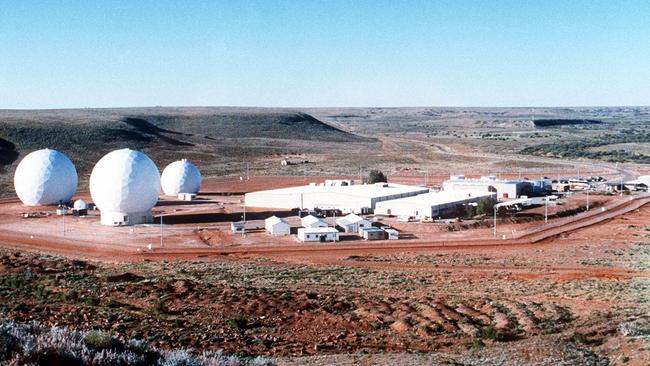Accidental nuclear exchange ‘risk to Australia’
Joint US-Australian intelligence facilities, including Pine Gap, could contribute to an inadvertent nuclear exchange with China.

Growing US-China tensions have heightened the risk of an accidental nuclear exchange between the superpowers, with new Chinese “theatre range” missiles posing a danger to Australia, a new paper warns.
Research for the United States Studies Centre warns the convergence of management systems for both conventional and nuclear weapons means an attack on US or Chinese space and cyber capabilities could prompt a nuclear response from either country.
The paper by Dr Fiona Cunningham says joint US-Australian intelligence facilities on Australian soil, including Pine Gap, could contribute to an inadvertent nuclear exchange by supporting a US attack on Chinese sites that are “in fact part of China’s nuclear force”.
It says Australia should lobby the US to lower the risk of a nuclear exchange, while also seeking a guarantee that the US would retaliate on Australia’s behalf if it was targeted in a nuclear attack.
“Inadvertent nuclear escalation poses a greater risk of nuclear use in a future US-China conflict than deliberate use,” the paper says.
It says “inadvertent nuclear escalation” could occur if a conventional attack by one country hits its adversary’s nuclear arsenal or supporting infrastructure, “causing the target country to respond with nuclear weapons”.
China has an arsenal of about 300 nuclear weapons, including theatre and intercontinental-range missiles, compared to the United States’ 1750 strategic nuclear weapons.
It says China’s new DF-26 theatre range missiles “could enable a shift towards a more ambitious Chinese nuclear strategy”, which would threaten Australia more than an increase in intercontinental nuclear weapons.
Unlike Australia, Japan and South Korea have explicit “extended deterrence guarantees” that the US would launch a nuclear counter-attack if either were targeted with nuclear weapons.
The paper says if Australia sought a similar guarantee from the United States, it would “ensure that the consequences of attacking Australia were as clear to Beijing as for South Korea or Japan”.




To join the conversation, please log in. Don't have an account? Register
Join the conversation, you are commenting as Logout